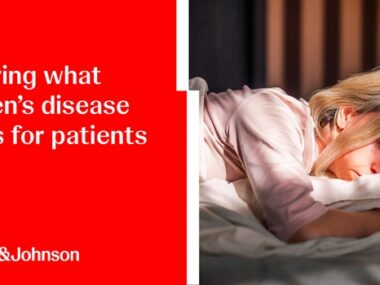Stressful Life Events May Trigger Sjögren’s Onset in Women
Written by |

Women with primary Sjögren’s syndrome experience more negative stressful life events than healthy people in the year before symptom onset, and the number of these negative events is associated with more severe disease activity, a study has found.
“These results suggest that we should pay attention to the role of chronic psychological stress in the development and course of pSS [primary Sjögren’s syndrome] in clinical practice,” the investigators wrote.
The study, “Association Between Stressful Life Events and Female Primary Sjogren’s Syndrome and Their Role in Disease Activity: A Retrospective Case-Control Study in China,” was published in Neuropsychiatric Disease and Treatment.
Sjögren’s is characterized by the immune system attacking the glands that produce secretions such as tears and saliva, leading to severe dryness of the eyes and mouth.
Chronic stress and stressful life events can trigger autoimmune diseases like rheumatoid arthritis, psoriasis, and inflammatory bowel disease. One study also found that multiple stressful events may be a risk factor for developing primary Sjögren’s syndrome, but the link is less well-studied.
In the study, researchers at the The First Affiliated Hospital of China Medical University investigated stressful life events prior to symptom onset, and their potential link to disease activity, in female Sjögren’s patients followed at their center between January and June 2019.
A total of 67 patients and 67 age-matched healthy controls were included in the analysis. Their life events were assessed using the Stressful Life Events Scale, which classifies events as positive or negative and evaluates the stimulus caused by an event, with greater stimulus corresponding with more mental stress.
Compared with the control group, Sjögren’s patients had a greater number of negative stressful life events (2.81 vs. 0.59 for controls), total number of stressful events (2.86 vs. 0.63), and total stressful events stimulus score (20.29 vs. 2.87).
Statistical analysis found that each of these factors was significantly associated with Sjögren’s diagnosis. Also, when the negative events were divided according to their association with work or study issues, family or life problems, or social activity, stressful events related to work-study and family-life increased the likelihood of a Sjögren’s diagnosis.
After adjusting for alcohol use, smoking status, pregnancy, and menopause, negative events — in terms of the number, stimulus score, work-study-related, and family-life-related — were independently associated with the disease.
Finally, after adjusting for factors associated with disease activity — such as disease course, smoking status, and pregnancy history — the investigators found a significant association between the number and stimulus score of negative events and disease activity, measured by the EULAR Sjögren’s syndrome disease activity index.
“According to our findings, female pSS patients seemed to have experienced more stressful life events, particularly negative stressful events, prior to the disease onset,” the researchers wrote.
“Paying attention to factors such as chronic stress and emotional states before the onset of pSS may be helpful in preventing the development of pSS and may provide valuable information concerning the pathogenesis and treatment of pSS,” they concluded.





